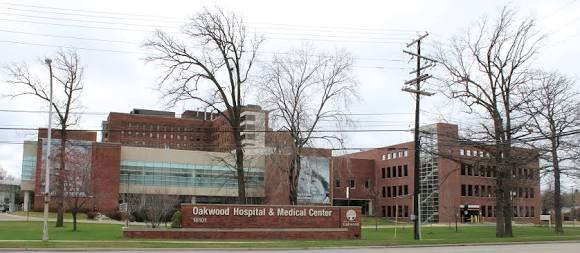It was a colossal blunder, wrote Chief Justice Stephen J. Markman. “This case involves a remarkable confluence of what appears to be both medical and legal dereliction,” he wrote, “resulting in an extraordinary miscarriage of justice.”
Michigan (TIP): When Bimla Nayyar dislocated her jaw in January 2012, her family took her to a Dearborn, Michigan, hospital for what was supposed to be a routine surgery. But things went horribly awry after doctors wheeled the 81-year-old grandmother into the operating room.
At some point during their preparations, staff at Oakwood Hospital and Medical Center mixed up Nayyar’s x-ray records with another patient’s, as the hospital’s lawyers would later concede in court. Instead of operating on her jaw, surgeons bored into her skull in search of brain bleeding that wasn’t there. She died of complications related to the surgery two months later.
In 2015, a jury awarded Nayyar’s family a staggering $20 million. But Michigan’s highest court says they can’t collect a penny – all because of an apparently bad legal gamble.
In a short, sharply-worded order last week, the Michigan Supreme Court faulted the family’s lawyers for arguing that Nayyar’s death was the result of ordinary negligence, a claim that places no limits on the amount of money plaintiffs can be awarded.
An earlier ruling in the case had effectively barred the lawyers from pursuing an ordinary negligence claim, the justices wrote. Instead, they should have argued medical malpractice, under which financial awards are capped. They didn’t, so the award had to be voided, according to the order.
It was a colossal blunder, wrote Chief Justice Stephen J. Markman.
“This case involves a remarkable confluence of what appears to be both medical and legal dereliction,” he wrote, “resulting in an extraordinary miscarriage of justice.”
The order leaves in place a lower court ruling that overturned the $20 million award.
The lead attorney for Nayyar’s family, Geoffrey Fieger, pleaded with the court to restore the award, noting that the hospital had admitted negligence during the proceedings.
“This court would have to suspend all concepts of fair play, justice and truth to ignore the gross injustice that has occurred here,” Fieger and co-counsel said in a filing, according to the Associated Press. “For God’s sake, do something about it.”
But Markman said the attorneys poisoned their case when they “repeatedly asserted” during trial that the claim being litigated was ordinary negligence, even though that claim was already off the table.
“To summarize,” the justice wrote, “plaintiff now has no negligence claim and no medical malpractice claim, all despite the fact that (a) defendant-hospital openly admitted negligence, (b) a jury determined that this negligence constituted the proximate cause of plaintiff’s death, and (c) a jury awarded plaintiff a $20 million verdict.”
Oakwood’s attorneys said the family’s counsel erred by making an “all or nothing . . . bad bet” on a negligence claim, according to the Associated Press.
Fieger was not immediately available to discuss the case on February 15th .
One of Michigan’s most prominent trial attorneys, Fieger is known for taking on high-stakes, headline-grabbing lawsuits and criminal cases.
When Bimla Nayyar’s family retained him after her death in 2012, Fieger called her case “the most shocking abuse I have ever seen” in nearly four decades of practice, according to the Detroit Free Press.
The family’s lawsuit initially alleged ordinary negligence, but a trial court dismissed that claim, according to the Michigan Supreme Court’s order. In turn, the family refiled the lawsuit as a medical malpractice action, and the hospital “conceded negligence so that the case proceeded to a jury only on the issues of causation of death and damages,” the order noted.
But during trial, the family’s attorneys continued to present the case as ordinary negligence in an attempt to win a judgment that was, in the high court’s words, “unmoored” from the cap on financial damages. That was the move that ultimately cost the family its $20 million award. Under Michigan law, the family could have received an award of several hundred thousand dollars if lawyers had successfully argued medical malpractice.
Nayyar left behind a husband, two daughters, a son and several grandchildren, according to the Detroit Free Press. Relatives spread her ashes in the River Ganges in India, her home country.
At the end of his order, Markman, the chief justice, signaled again that he sympathized with Nayyar’s family: “The decedent’s husband’s plaintive inquiry nonetheless resonates loudly: ‘How is [this] possible in a just and fair world . . . ?’ There is no satisfactory answer, in my judgment, only that further review of this matter might well be pursued in an appropriate action.”
Source (DOJ)
